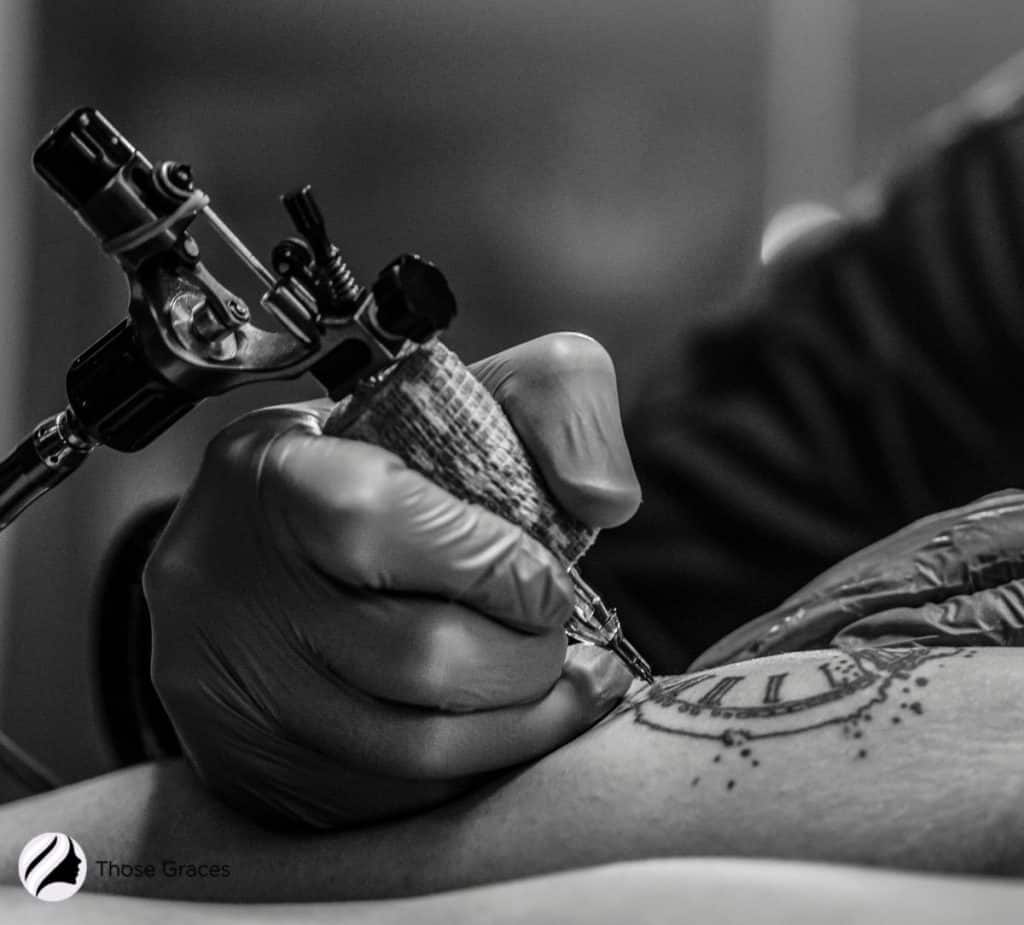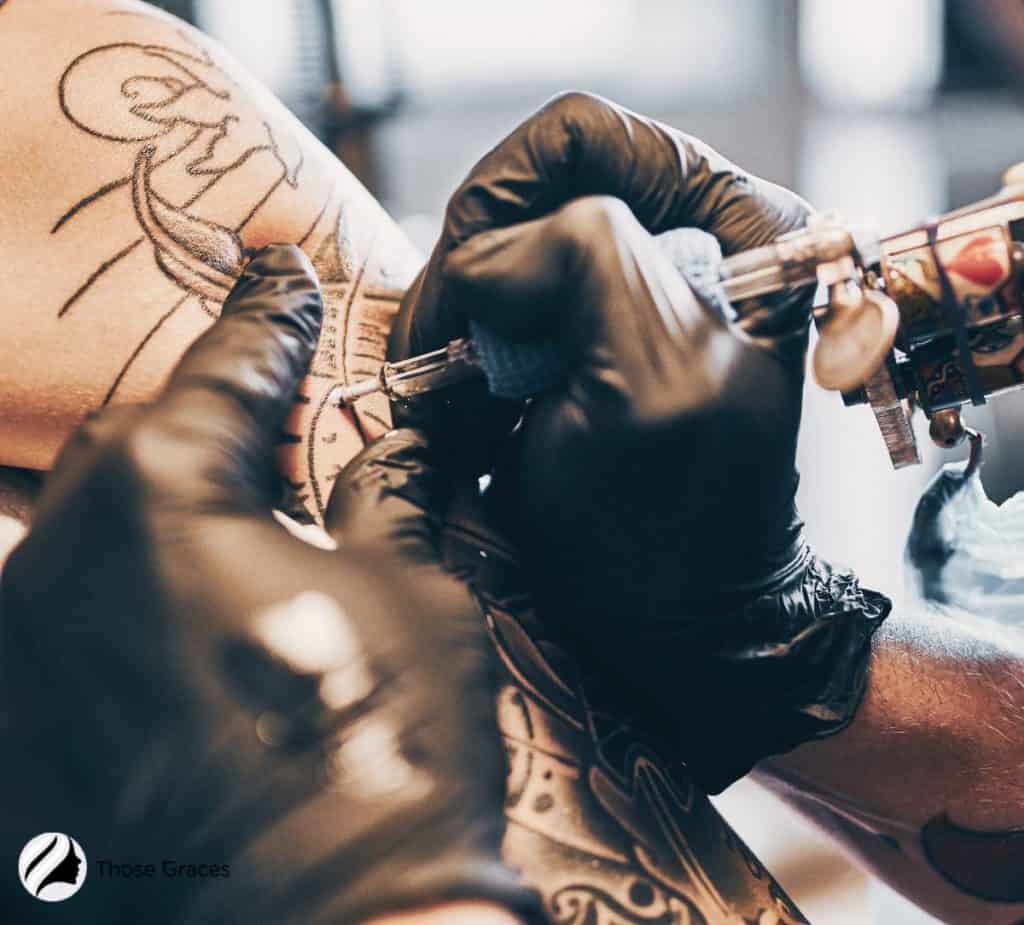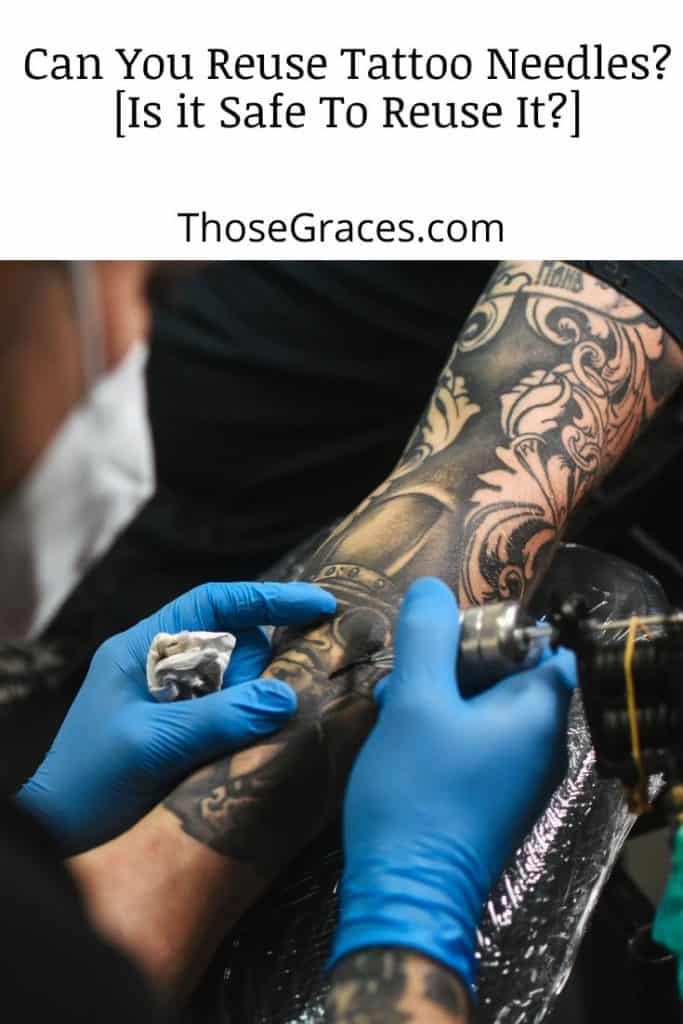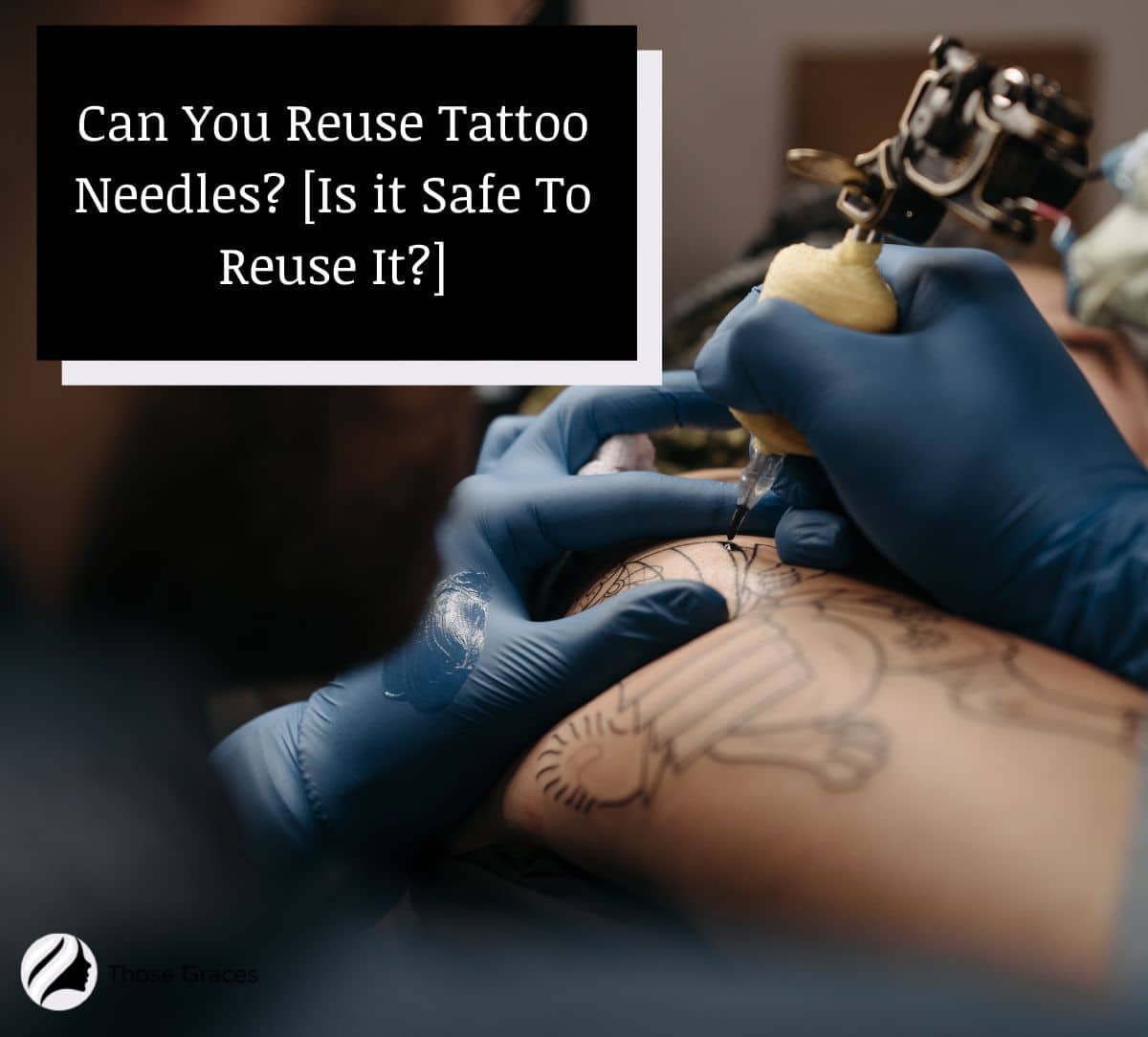Can you reuse tattoo needles? No, you can’t, and you shouldn’t because you risk infecting people with diseases.
U.S. states like New York require an artist in a tattoo shop to only use single-use needles on each person (1).
Learn the hygiene measures that a tattoo parlor must follow and why you should never reuse tattoo equipment like needles.
Table of Contents
Key Takeaways
- Tattoo needles are single-use instruments, and you can’t reuse them.
- Follow stringent hygiene practices to run a successful tattoo parlor and avoid infections.
- If well-sterilized, you can reuse a needle on yourself.
- Reusing tattoo needles on fake skin is okay.
Do Tattoo Artists Reuse Needles?
Most licensed professional tattoo artists don’t reuse needles. Reusing needles in the tattoo industry is illegal. Tattoo needles come in contact with blood, making them unsafe for use with multiple people.
Here is a video showing how tattoo needles get in contact with blood.
Though some people can seem clean, you can never be too sure. People’s blood carries lots of infections that might not even show symptoms.
Using one needle for multiple people increases the risk of infecting them with infections, such as Hepatitis B or Hepatitis C, among other infections (2).
According to Dr. Phillips R Cohen of the University of California’s Dermatology department, reusing needles is risky behavior (3).
It puts the clients’ health at risk, especially of hepatitis C or B and viral diseases like HIV, HPV, and Herpes Simplex, among others.
The single-use rule might be an alien concept to beginner tattoo artists using beginner rotary tattoo machines. But it’s a rule made in good faith.
Most reputable professional tattoo artists use safe, top-of-the-line tools and follow the best sanitary practices.
Excellent hygiene is paramount in doing tattoos, and professional artists understand that even if it affects how much a good tattoo costs.
Can You Use the Same Tattoo Needle Twice on Yourself?
Now, if you can’t use a tattoo needle on multiple people, can you reuse tattoo needles on yourself?
While you should embrace the single-use practice even when tattooing yourself, you can use a needle twice in that situation.

You won’t be risking any other person’s health other than yours, which technically makes it legal. But if you’re using it on your body, you’ll still have to sterilize the needle well.
Household surroundings don’t have conditions hygienic enough for a tattoo.
There are higher chances of cross-contamination since you probably won’t have set up your household with a suitable practice surface, as in a professional tattoo parlor.
But you can use a needle twice without health risks if you have a home studio and follow safe hygiene practices.
And before you think of it, dipping needles into water or using alcohol wipes won’t safely sterilize tattoo needles.
Hot water doesn’t possess the power to eliminate pathogens on tattoo equipment.
What Are Other Hygiene Measures To Observe in a Tattoo Parlor?
Are you a beginner tattoo artist planning to open a professional tattoo parlor one day? Avoiding reusing needles isn’t the only hygiene measure to follow.
You’ll have to follow stringent hygiene practices to maintain a safe tattoo practice. Here are some of them:
1. Always Keep Your Tattoo Shop Clean
Cleanliness is the first red flag for potential customers when they step into your tattoo studio.
Any professional tattoo artist knows a clean shop makes it easier to attract customers and avoid infections.
So that means always having an empty sharps container, cleaning all surfaces, especially the tattoo station, and throwing away all disposables properly. Disinfect every corner and have an orderly studio.
No customer will want to get a tattoo in a studio teeming with filth.
2. Always Wear Clean Gloves When Tattooing
Safe hygiene practices aren’t only for the customer’s protection. They are for your protection, too. So always wearing clean gloves whenever you’re tattooing a client makes sense.
Also, immediately throw away disposable gloves as soon as you finish using them.

3. Have an Endless Amount of Disposables
Disposable tubes, gloves, needles, paper towels, and even masks are necessary if you run a hygienic tattoo parlor.
So always have enough of those items to avoid the temptation to reuse them.
4. Avoid Intoxicated Customers
It’s dangerous to tattoo intoxicated customers who might think it makes it easier to ignore the pain.
Alcohol is a known blood thinner, that affects blood clotting (4). A customer that drank alcohol to have a tattoo could bleed excessively.
5. Have Proper Storage Areas and Equipment
It is prudent to have a clean and dry area for storing reusable equipment, such as tattoo guns, grips, and tubes.
They should be clean, well-ventilated, and dry.
Also, have a specific clean section to store single-use equipment. Jens Bergström, a Swedish professional tattoo artist, advises that artists should use cabinets with doors to store materials such as ink bottles and color fluids for tattooing (5).
6. Invest In Proper Sterilization Machines
After knowing how much is tattoo machine cost, you’ll probably need to know the costs of sterilization equipment.
Though the means of sterilization are at the owner’s discretion, it’s wise to invest in an autoclave machine.
Autoclavable tattoo equipment is easier to sterilize with the help of an autoclave machine.
FAQs
Can you reuse tattoo needles on fake skin?
How often should you change your tattoo needles?
Can you reuse a tattoo needle if you sterilize it?
Conclusion
So, can you reuse tattoo needles? The answer is no. Tattoo needles are single-use instruments you should never reuse.
Immediately dispose of them once you finish a tattoo design on human skin.
Reusing tattoo equipment poses health risks because of the contact with blood when tattooing. This contact may transfer blood-borne infections among customers.

Know of any other helpful tattoo hygiene practices to observe? Please share them with us down below in the comments.
References
- 1. New York State Department of Health. Article 4-A Regulation of Body Piercing and Tattooing [Internet]. www.health.ny.gov. [cited 2022 Nov 11]. Available from: https://www.health.ny.gov/community/body_art/article_4a.htm#single_use
- 2. Morales-Brown L. Tattoo risks: Precaution, preparation, and aftercare [Internet]. Weatherspoon D, editor. www.medicalnewstoday.com. 2020 [cited 2022 Nov 11]. Available from: https://www.medicalnewstoday.com/articles/tattoo-risks
- 3. Cohen PR. Tattoo-Associated Viral Infections: A Review. Clinical, Cosmetic and Investigational Dermatology. 2021;14:1529–40.
- 4. Lange DP. Drinking and Blood Clotting [Internet]. WebMD. 2000 [cited 2022 Nov 11]. Available from: https://www.webmd.com/heart-disease/news/20000426/moderate-alcohol-prevent-blood-clots
- 5. Bergström J, Bodlund M. Regulation of and Intervention in the Tattoo Business. In: Serup J, Bäumler W, editors. Tattooed Skin and Health [Internet]. Karger; 2015. Available from: https://www.karger.com/Article/Pdf/369178


